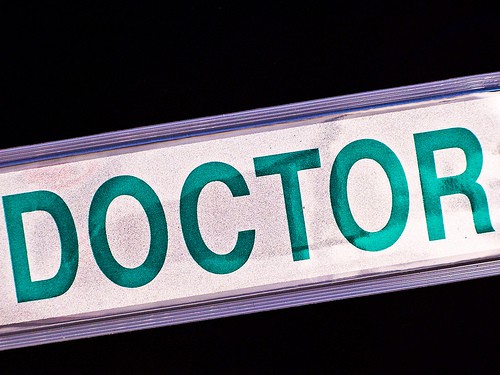
Brookdale Hospital – A Culture Of Unsafe Medical Practice
As New Yorkers, we often think we have the best and most advanced healthcare options in the world, and in many ways that is true.
Home » Patient Safety Blog » Empowering Patients: Are You Getting the Medical Information You Need?
A column caught my eye earlier this month which discusses in detail the problems patients are having obtaining adequate information about their own care.
In this era of instant internet research, one might expect that patients are, or should be, more informed than ever about their health care choices, medical conditions, and treatment options.

There are countless websites on everything from insurance plans to health care providers.
Google seems to be everyone’s first stop these days for everything, including learnings about different health issues.
So why aren’t patients, as consumers of medical care, better informed?
While it is true that more information is physically available to patients than ever before, that does not mean that people understand it.
There are more than 150 public websites comparing healthcare providers, but they are hard to use and the information provided is simply vague and confusing.
The case is similar with non-governmental “report cards” on hospitals and physicians.
The data is there, but very few consumers can make heads or tails of it.
Also, there are suggestions for patients to simply “ask their doctors” more questions.
However, not all doctors welcome this, and some doctors still find it insulting.
And among those who do ask, many patients find their doctor’s incomplete, inadequate, or convoluted instructions impossible to understand.
On top of that, there are amorphous websites like Angie’s List, where consumers can go and post reviews of various things, including health care providers.
The problem with relying on this type of information is that it is often not verified or reviewed by anyone.
So an angry patient can trash a hospital that overall might have a good record.
On the other hand, these consumer-rated websites have also suffered from a barrage of tricks by both institutions and their competitors.
This includes posting glowing reviews for their own benefit that do not accurately reflect the level of care being offered.
Doctors are also sometimes reluctant to give patients all of the relevant information about treatment options or their prognosis.
This is particularly a problem with end of life care. However, it’s not exclusive.
Take for example the ACR’s resistance to requiring that radiologists disclose the failure rate of mammography to patients.
It has been known for decades that mammograms will miss 52% of cancers in women who have dense breasts.
Yet, how many women know this?
Literally, the only women that I’ve met who are aware of this fact are ones who have had their breast cancer diagnosis delayed, or a few who have heard of it on Oprah.
I have spoken with women from across the Country who all have same story.
They faithfully go for their annual mammograms and are told at each visit that they don’t have cancer.
This goes on for years, often over a decade.
Then all of a sudden they feel a lump and find out that its cancer that has been there a long time.
It’s only then that the doctors announce that mammograms can’t detect cancer in dense breasts.
I plan to cover this important issue in more detail in an upcoming post.
Finally, the problems with patient-doctor communication become magnified when it comes to physician mistakes and medical malpractice.
Many doctors explain the adverse affects of a procedure, but few volunteer that human error caused it.
In a 2006 Archives of Internal Medicine study, a full 19% of doctors said they would not volunteer any information whatsoever on the cause of the mistake.
No wonder it is often so hard for patients to understand why the outcome of their treatment might not have gone as planned with this kind of information withholding.
If you are interested in more information about these issues, I encourage you to read the full column on Hospitals and Health Network website.
What are your thoughts on this modern issue of too much information, but not enough reliable, comprehensible information?
Are there ways to get patients and consumers involved in the discussion to help them make more informed decisions about their medical care?
Here, at The DiPietro Law Firm, we’re committed to helping victims of sexual abuse and assault find the justice they deserve.
All information discussed during our consultations always remains completely 100% confidential.
Would you like our help?
Founder Anthony T. DiPietro, Esq. is a compassionate and skilled trial attorney who has completely dedicated the past 23 years of his career to litigating medical malpractice and sexual abuse cases against major corporate institutions including hospitals, medical clinics, schools, and other wrongdoers.
Mr. DiPietro has also obtained some of New York State’s highest verdicts and settlements, and has been selected to New York State Super Lawyers® each year, for the past 10 years in a row.
In 2022, Mr. DiPietro was selected as one of America’s Top 100 High-Stakes Litigators for the landmark cases he’s won on behalf of survivors of sexual exploitation and abuse.
Here, at The DiPietro Law Firm, we’re committed to helping victims of sexual abuse and assault find the justice they deserve.
All information discussed during our consultations always remains completely 100% confidential.
Would you like our help?

As New Yorkers, we often think we have the best and most advanced healthcare options in the world, and in many ways that is true.

As a New York medical malpractice lawyer, I understand the trust involved in the relationship between doctor and patient – and the way it can be broken.
Years of Abuse: 1987 – 2016
Brief:
Robert Hadden, a disgraced Obstetrician-Gynecologist (OB/GYN) who worked for Columbia University and NewYork-Presbyterian Hospital, was criminally convicted in 2016 of sexually exploiting and abusing patients under the guise of medical care.
Hadden used his position of authority and trust to sexually exploit women and girls for nearly three decades as a Columbia University physician.
All the while, Columbia University and New York-Presbyterian Hospital administrators turned their backs and ignored reports of Hadden’s abuse, gaslighting patients and the public.
Read More:
Years of Abuse: 1979 – 2022
Brief:
David H. Broadbent is a former OB/GYN under criminal investigation and facing civil lawsuits for sexual abuse of patients.
Broadent worked at multiple medical facilities in the Provo, Orem and Salt Lake City, UT areas.
These facilities included Intermountain Healthcare’s Utah Valley Hospital, MountainStar Healthcare’s Timpanogos Hospital, other Utah health care providers, and he also had adverse action taken against his medical license back in 1990.
Read More:
Years of Abuse: 1990 – 2016
Read More: University of Southern California & Predator George Tyndall
Years of Abuse: 1961 – 1996
Brief:
22 predator teachers and administrators, over the course of 35 years.
Years of Abuse: 1960 – 1982
If you have any questions about whether or not you have a case, or just want to obtain more information about what you’ve experienced – feel free to contact us through our secure website chat.
You can also contact us by calling us at (212) 233-3600 or toll free at (800) 215-1003.
All of our consultations are free and 100% confidential. Thank you.